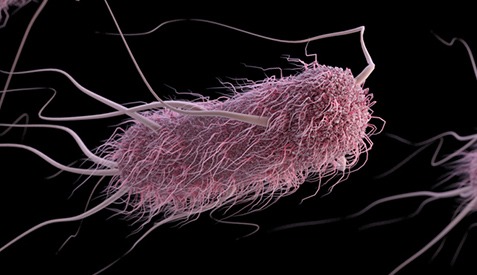
The Centers for Disease Control and Prevention CDC has not yet been able to establish the source of a recent E. coli outbreak in the U.S. that has caused 84 people to become ill, resulting in the hospitalization of 38 of them.
While the agency has not confirmed a specific food as the source of this outbreak, many ill people reported eating sandwiches with romaine lettuce at Wendy's restaurants in Indiana, Michigan, Ohio and Pennsylvania before becoming ill, the CDC detailed in an account of the outbreak.
Based on this information, Wendy's has taken the precautionary measure of removing the romaine lettuce used in sandwiches from restaurants in that region. However, Wendy's uses a different type of romaine lettuce for salads.
Investigators are working to confirm whether romaine lettuce is the source of this outbreak and whether romaine lettuce used in Wendy's sandwiches was served or sold at other businesses. Wendy's is cooperating fully with the investigation, the agency said.
What you should do
CDC does not recommend that people avoid eating at Wendy's restaurants or stop eating romaine lettuce.
At this time, there is no evidence that romaine lettuce sold in supermarkets, served in other restaurants, or in people's homes is linked to this outbreak. In addition, CDC will update this advice if the investigation identifies foods to avoid.
It is important to call your health care provider right away if you have any of these serious symptoms of E. coli:
- Diarrhea and fever higher than 102°F ?more than 38°C?
- Diarrhea for more than 3 days that does not improve
- Bloody diarrhea
- Vomiting so much that you can't keep fluids down
- Signs of dehydration, such as: not urinating much, dry mouth and throat, and/or feeling dizzy when standing up.
Also, if you have symptoms of E. coli, help public health officials resolve this outbreak:
- Write down what you ate in the week before you got sick.
- Report your illness to your local or state health department.
- Answer questions from public health officials about your condition
What is E. coli?
Escherichia coli - E. coli - is a large and diverse group of bacteria. Although most strains of E. coli are harmless, others can make you sick.
It normally lives in the intestines of people and animals. Most E. coli are harmless and, in fact, are an important part of a healthy human intestinal tract. However, some E. coli are pathogenic, which means they can cause illness, either diarrhea or disease outside the intestinal tract.
The types of E. coli that can cause diarrhea can be transmitted through contaminated food or water, or by contact with animals or people.
Symptoms of E. coli
Most people infected with Shiga toxin-producing E. coli experience severe stomach cramps, diarrhea - often bloody - and vomiting.
Symptoms usually begin 3 to 4 days after swallowing the bacteria and most people recover without treatment in 5 to 7 days.
Some people may develop a type of kidney failure - hemolytic uremic syndrome, also called HUS - and require hospitalization.
You may be interested in: California will refer to simian pox as "MPX" to avoid stigmatization of the name.


